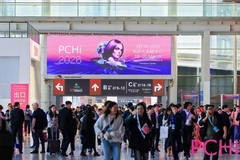L’Oréal and IBM announce generative AI model for cosmetic formulations

L’Oréal is partnering with IBM to develop a custom generative AI model that will be used to speed up cosmetic formulation processes, adding to the growing number of generative AI applications in the personal care market.
The custom AI tool is “engineered to significantly increase the ability of L’Oréal Research & Innovation teams to reach extra performance and consumer satisfaction in every cosmetic category and every region of the world,” says IBM.
The tech company says that besides improving formulation discovery, the goal of this AI model will be to help L’Oréal source raw materials and reduce energy and material waste. This effort could support L’Oréal’s sustainability goals if it can help the brand prioritize efficient solutions and processes.

“As part of our Digital Transformation Program, this partnership will extend the speed and scale of our innovation and reformulation pipeline, with products always reaching higher standards of inclusivity, sustainability and personalization,” says Stéphane Ortiz, head of innovation at L’Oréal Research & Innovation.
The promise of AI
Generative AI applications are most commonly found for large language models, such as ChatGPT, to generate text, create content and retrieve information. IBM’s GenAI is used for hospitality, tourism, scientific research and health care applications.
The promise of generative AI is to speed up the innovation processes that eventually launches a product on the market. For example, the AI can predict and identify new ingredients with bioactive compounds, a process that would otherwise take a significant amount of time and effort to research manually. Once the AI tool makes useful and accurate predictions, the products can be rigorously tested and validated for efficacy and safety. Furthermore, the tool could also align these newly developed products to emerging market trends, ensuring they meet consumer demands and industry standards effectively. 
Using AI in cosmetic development could transform beauty companies like L’Oréal, says Alessandro Curioni, VP of Europe and Africa and director of IBM’s research lab in Zurich, Switzerland.
“At IBM, we believe in the power of purpose-built, customized AI to help transform businesses. Using IBM’s latest AI technology, L’Oréal will be able to derive meaningful insights from their rich formula and product data to create a tailored AI model to help achieve their operational goals and continue creating high quality and sustainable products,” he says.
Generative AI in beauty is just getting started
Companies across the beauty sector are harnessing generative AI’s capabilities to design products and identify ingredient formulations, indicating an AI formulation transformation is only just getting started.
Last week, Brenntag Specialities announced that it is using an AI tool from biotechnology company Cambrium to help identify skin care formulations that will feature NovaColl, a vegan collagen supplement.
Personal Care Insights recently interviewed NotCo about its Fragrance Formulator, a generative AI that is helping craft bespoke fragrances.
In a market where trends unfold quickly, beauty companies who adopt generative AI tools may claim the competitive edge. The collaboration between L’Oréal and IBM adds to the growing number of brands looking to innovate in this area.
IBM engineer and AI expert Guilhaume Leroy-Méline says, “This alliance between highly specialized expertise in artificial intelligence and cosmetics seeks to revolutionize cosmetic formulation.”













